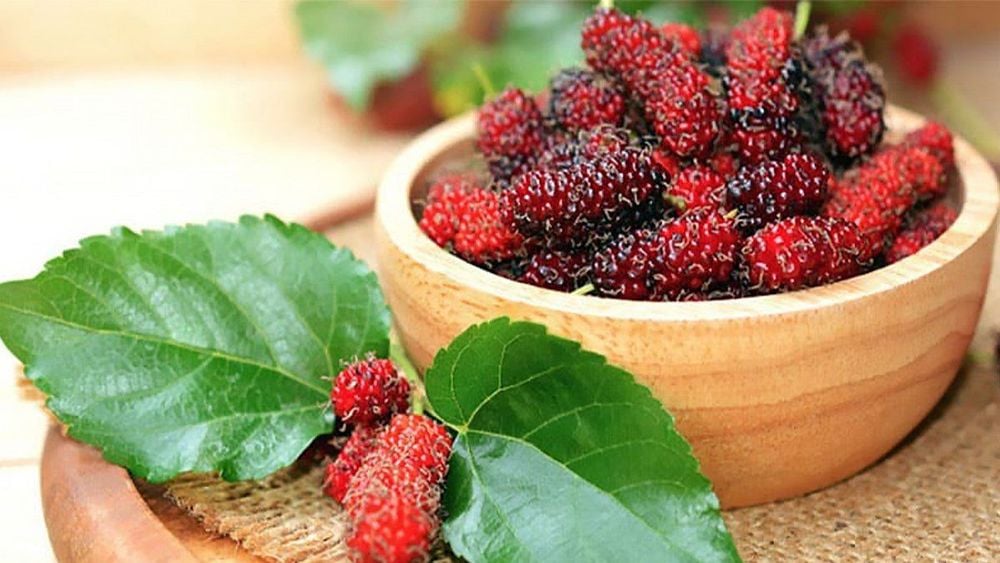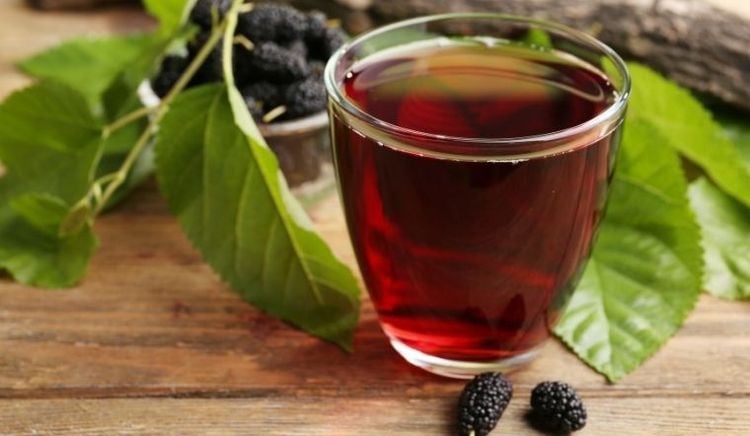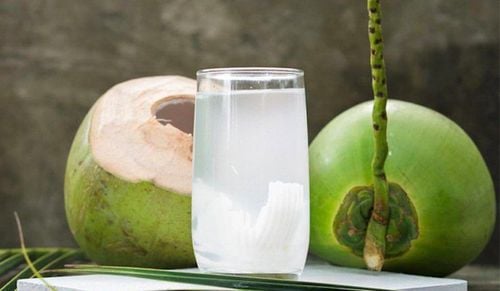Traditional Chinese Medicine has long utilized mulberry leaves to support vision improvement, nourish the liver, unaffected by wind-related ailments, and purify the body. They are also believed to help treat dizziness, dysentery, enhance liver function, maintain youthful skin, alleviate symptoms of cough and cold, boost blood circulation, relieve abdominal pain, and strengthen eye health. Read on to explore the uses and benefits of mulberry leaves in greater detail.
The mulberry tree produces flavorful berries beloved worldwide and often regarded as a superfood due to their rich content of vitamins, minerals, and potent plant compounds. However, the flesh of the fruit is not the only part of the mulberry tree that can benefit your health. For centuries, its leaves have been used in traditional medicine as a natural remedy for various health conditions.
In fact, mulberry leaves are highly nutritious. They are packed with powerful plant compounds such as polyphenol antioxidants, as well as essential nutrients like vitamin C, zinc, calcium, iron, potassium, phosphorus, and magnesium.
1. How are mulberry leaves used?
Records of 3,000 years of mulberry cultivation have been found in China. The mulberry tree was utilized by ancient Chinese for food, paper production, silkworm farming, and medicinal purposes. Mulberry leaves (Morus) belong to the Moraceae plant family and include several species, such as black mulberry (M. nigra), red mulberry (M. rubra), and white mulberry (M. alba).
Originally native to China, the mulberry tree is now cultivated in many regions, including the United States, Europe, Asia, and Africa. Mulberry leaves have a wide range of applications in cuisine, medicine, and industry.
The leaves and other parts of the tree contain a milky white sap known as latex, which is mildly toxic to humans and can cause symptoms like abdominal (belly) pain if ingested or skin irritation upon contact. However, many people consume mulberry leaves without experiencing any side effects. The leaves are considered quite flavorful and are often used to make tinctures and herbal teas — a popular healthy drink in many Asian countries. The young leaves are edible after cooking.
You can also find mulberry leaves as a dietary supplement, which is gaining popularity due to their potential health benefits. Additionally, these leaves serve as the sole food source for silkworms — caterpillars that produce silk — and are sometimes used as feed for dairy-producing animals.
2. Health benefits of mulberry leaves
Mulberry leaves may help reduce blood sugar levels, cholesterol, and inflammation. These properties can make them useful for preventing heart disease and diabetes.
2.1. May lower blood sugar and regulate insulin levels
Mulberry leaves contain various compounds that may aid in combating diabetes, including 1-deoxynojirimycin (DNJ), which blocks the absorption of carbohydrates in the gut. Specifically, these leaves can lower high blood sugar and insulin levels, the hormone responsible for regulating blood sugar.
In a recent study, 37 adults consumed maltodextrin, a starchy powder that rapidly raises blood sugar levels. They were then given mulberry leaf extract containing 5% DNJ. Those who consumed 250 or 500 mg of the extract experienced significantly lower blood sugar and insulin spikes compared to the placebo group.
Additionally, in a 3-month study, individuals with type 2 diabetes who took 1,000 mg of mulberry leaf extract three times daily with meals saw a significant reduction in post-meal blood sugar levels compared to the placebo group.

2.2. May promote heart health
Several studies suggest that mulberry leaf extract may enhance heart health by lowering cholesterol levels, reducing blood pressure, decreasing inflammation, and preventing atherosclerosis — the buildup of plaque in the arteries that can lead to heart disease. In one study, 23 individuals with high cholesterol were given 280 mg of mulberry leaf supplements three times daily. After 12 weeks, their LDL cholesterol (bad cholesterol) levels decreased by 5.6%, while their HDL cholesterol (good cholesterol) levels increased by 19.7%.
Another 12-week study observed that 10 individuals with high triglycerides who took mulberry leaf supplements containing 36 mg of DNJ daily reduced their triglyceride levels by an average of 50 mg/dL.
Additionally, animal studies indicate that mulberry leaves may prevent atherosclerosis, reduce cellular damage, and lower high blood pressure — all of which are risk factors for heart disease.
2.3. Anti-inflammatory effects
Mulberry leaves are rich in anti-inflammatory compounds, including flavonoid antioxidants. Research shows that mulberry leaves may prevent inflammation and oxidative stress, both of which are linked to numerous chronic diseases. Studies on mice fed a high-fat diet have shown that supplements derived from these leaves reduced inflammatory markers like C-reactive protein, as well as oxidative stress indicators like superoxide dismutase.
Additionally, an in-vitro study on human white blood cells found that mulberry leaf extracts and its tea not only reduced inflammatory proteins but also significantly decreased DNA damage caused by oxidative stress. Although these results are promising, most of them have only been conducted on animals, so further human research is needed to confirm the effects of mulberry leaves on health.
2.4. Reduces symptoms of the common cold
Mulberry tea is used to treat liver diseases and various ailments, including headaches, cough, eye pain, fever, and sore throat. The development of restricted bacterial strains helps prevent granular pharyngitis (nodular throat inflammation). Drinking mulberry tea can help alleviate cold symptoms by inhibiting bacterial growth.
2.5. Rich in beneficial minerals
Mulberry leaves are abundant in magnesium, a vital mineral essential for nerve and muscle function, as well as maintaining a healthy heart. Magnesium boosts energy metabolism, strengthens bones, supports the immune system, regulates blood sugar levels, and helps maintain normal blood pressure.
Additionally, mulberry leaves are rich in vitamin B2. This vitamin aids in red blood cell production, supports reproduction and growth, enhances energy production, regulates thyroid activity, prevents acne, protects the nervous system, promotes eye health, aids in mineral absorption, safeguards the digestive system, and supports a healthy pregnancy.
Mulberry juice contains antioxidants, vitamins, minerals, and also possesses medicinal properties. It enhances blood circulation and lowers blood pressure, reducing the risk of blood clots and strokes. Moreover, symptoms of anemia can be alleviated by consuming mulberry juice.

2.6. Other potential health benefits
Although research is still limited, mulberry leaves may offer several additional health benefits, including:
- Anti-cancer effects: Some in vitro (test tube) studies have linked these leaves to anti-cancer activity against human liver and cervical cancer cells, showing highly promising results.
- Liver health: In vitro and animal studies have identified that mulberry leaf extract may protect liver cells from damage and reduce liver inflammation.
- Weight loss: Studies on rodents have reported that these leaves may enhance fat burning and promote weight loss.
- Improved skin pigmentation: Certain in vitro studies have shown that mulberry leaf extract may help prevent hyperpigmentation - or dark patches on the skin - and naturally brighten the complexion.
3. Preventing side effects from mulberry leaves
Although mulberry leaves have largely been shown to be safe in both human and animal studies, they can cause side effects in some individuals.
For example, some people have experienced side effects such as diarrhea, nausea, dizziness, bloating, and constipation when taking supplements containing mulberry leaf extract. Additionally, individuals who are taking diabetes medication should consult a healthcare professional before using mulberry leaves due to their effects on blood sugar levels.
Furthermore, more in-depth human studies are needed to establish the long-term safety of this leaf. Children and pregnant or breastfeeding women should avoid using mulberry leaves, as there is insufficient research on their safety in these groups.
It is advised that we consult doctors before using any herbal supplements, especially if we are taking other medications or have any existing health conditions.
Mulberry leaves have long been used in traditional medicine and are associated with a variety of impressive health benefits. This unique leaf may prevent inflammation and reduce various risk factors for heart disease and diabetes. However, more human studies are needed to confirm these effects. We can use it as a supplement or eat the young leaves after cooking them. However, due to the potential side effects of mulberry leaves, it is important to consult a doctor before incorporating them into your diet.
Please dial HOTLINE for more information or register for an appointment HERE. Download MyVinmec app to make appointments faster and to manage your bookings easily.













